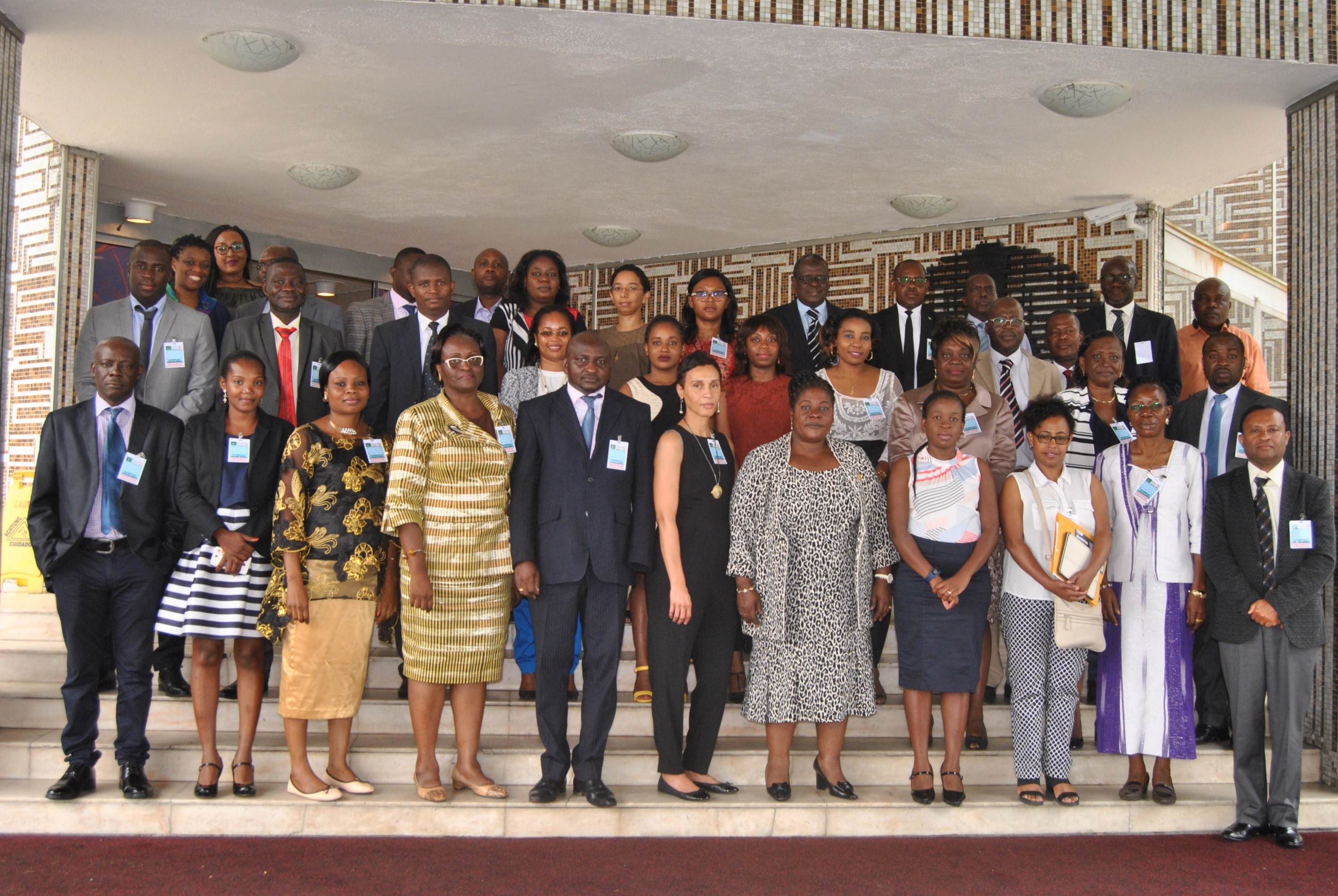Central Africa Regional Meeting on Strengthening Laboratory Systems and Networks in Support of Disease Surveillance
Together with the Africa Centres for Disease Control and Prevention (CDC) through its regional collaborating Center (RCC) in Gabon, ASLM jointly organized the first Central Africa regional meeting on strengthening laboratory systems and networks in support of disease surveillance. The meeting took place from 26 to 28 March 2018 at Le Meridien Hotel in Libreville, Gabon. ASLM was represented by Dr Pascale Ondoa (Director of Science and New Initiatives), Ms Koudedia Konate (Global Health Security Program Coordinator) and Dr Aytenew Ashenafi (Program Manager).
The meeting brought together representatives from seven central African nations, including Gabon, the Democratic Republic of Congo, the Central African Republic, Sao Tomé et Principe, Chad, the Republic of Congo and Cameroon. The objectives of the meeting were to:
- Identify and discuss ways to strengthen existing regional laboratory networks and ensure that they are adequately supported by robust national tiered networks
- Discuss and agree on a framework for developing and implementing national laboratory policies and strategic plans
- Advocate for and obtain country buy-in to map the capacity of laboratories at the national level and across networks of laboratories.
Mapping laboratory capacity at that national level – this would include public health, reference and regional laboratories – will support the establishment of the Regional Integrated Surveillance and Laboratory Network (RISLNET) agenda and the implementation of the Antimicrobial Resistance Monitoring and Surveillance Network (AMRSNET) under the umbrella of the Africa CDC RCC in Libreville,’ said Dr Ondoa. ‘The next step is to expand the mapping project across the entire national laboratory tiered networks, which will support general laboratory system strengthening activities.’
The meeting allowed country groups to exchange experiences and challenges during sessions moderated by experienced facilitators. A number of important recommendations came out of the discussion, including:
- Set up a regional laboratory coordinating body that integrates the requirements of the One Health approach with clear terms of reference. The terms of reference should define areas of intervention, such as the prevention and control, of emerging infectious disease and antimicrobial resistance. Countries also recommended that within the network, resources be mutualized based on the outcome of the mapping exercise.
- Use ASLM’s mapping tool in its current form for the collection, collating and analysis of data on the capacity of national reference and public health laboratories in the region. This activity will be conducted under the leadership of the RCC and coordinated by a focal person in Gabon. The mapping tool will be piloted in a subset of clinical laboratories in respective countries, who will provide feedback, before the tool is considered for mapping of national tiered networks.
- Africa CDC and its partners will promote the validation of existing national laboratory policies and strategic plans and facilitate their formulation wherever needed.
Authors: Dr. Pascale Ondoa and Dr. Aytenew Ashenafi
Editor: Mrs Bethanie Rammer

